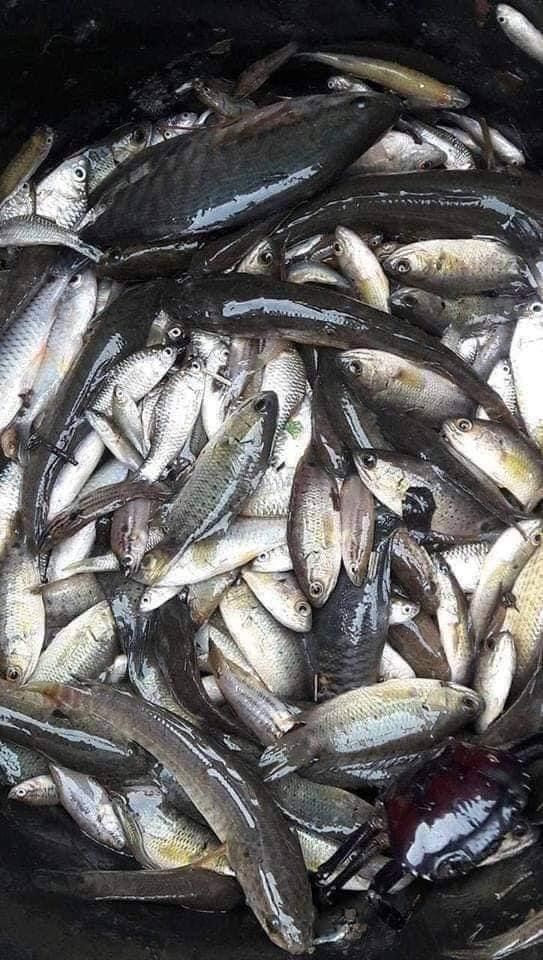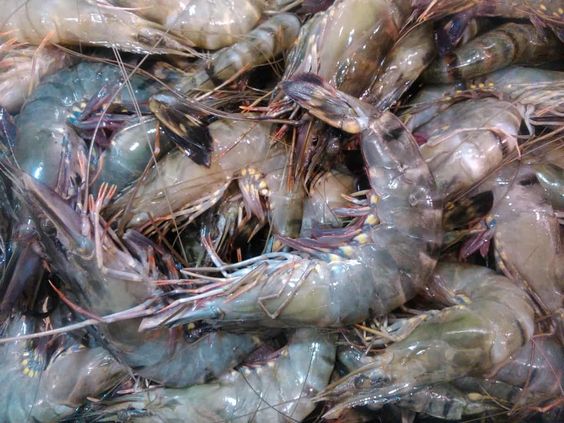Black Tilapia For Sale: A Comprehensive Guide Beyond Consumption
Black Tilapia For Sale, also known as Black Mozambique tilapia (Oreochromis mossambicus), is a freshwater fish native to southeastern Africa. It’s a popular choice for various purposes, including:
- Consumption: Black tilapia has a mild, slightly sweet flavor and firm flesh, making it versatile for culinary applications.
- Aquaculture: Black tilapia’s hardiness and adaptability make it a popular choice for fish farms due to its fast growth rate and efficient feed conversion.
- Aquaponics: Black tilapia can be integrated into aquaponic systems, where their waste provides nutrients for plants grown alongside them.
This Black Tilapia For Sale dives deep into the world of black tilapia, exploring its characteristics, benefits, and potential applications.
Contents
Black Tilapia: Understanding the Species
Black tilapia belongs to the cichlid family, known for their diverse and vibrant colors. While “black” is in the name, their actual color can range from a dull green to a solid black, sometimes with faint banding. Adults typically grow to 15 inches and weigh up to 2.4 pounds, although size and color can vary depending on their environment.
Here are some key characteristics of black tilapia:
- Hardy and Adaptable: Black tilapia thrives in a wide range of water conditions, from freshwater to brackish water and even saltwater environments with high salinity. This adaptability makes them suitable for various aquaculture settings.
- Fast Growth Rate: Black tilapia are fast growers, reaching marketable size within 6-8 months in optimal conditions. This rapid growth translates to efficient production within aquaculture facilities.
- Omnivorous Diet: They readily consume various food sources, including algae, plants, and small insects. This omnivorous nature makes them adaptable to different feeding strategies in farms.
- Relatively Disease Resistant: Black tilapia exhibit resistance to a variety of fish diseases, reducing the need for extensive use of antibiotics in aquaculture practices.
Benefits of Black Tilapia For Sale
Black Tilapia For Sale offers numerous advantages, making it a valuable species for various applications. Let’s explore some key benefits:
For Consumers:
- Mild Flavor and Versatility: Black tilapia boasts a mild, slightly sweet flavor that lends itself well to diverse culinary uses. It can be baked, grilled, fried, or used in stews and curries.
- Nutritional Value: Black tilapia is a good source of lean protein, low in fat and calories. It’s also rich in essential vitamins and minerals like Vitamin B12, selenium, and phosphorus.
- Affordability: Due to its efficient farming practices, black tilapia is a relatively affordable source of protein, making it accessible to a wider range of consumers.
For Aquaculture:
- Fast Growth and High Yield: The rapid growth rate of black tilapia translates to fast production cycles and high yields for fish farmers.
- Efficient Feed Conversion: Black tilapia efficiently utilize food sources, minimizing waste and maximizing production output.
- Hardy and Disease Resistant: Their hardiness and relative disease resistance make them less susceptible to outbreaks, reducing operational costs in aquaculture settings.
- Adaptability to Environments: The ability to thrive in various water conditions allows for flexible farming methods and reduces reliance on specific environments.
For Aquaponics:
- Waste as Fertilizer: The waste produced by black tilapia provides a natural source of nutrients for plants grown in aquaponic systems, promoting plant growth and reducing the need for external fertilizers.
- Symbiotic Relationship: The integration of black tilapia and plants in aquaponics creates a closed-loop system, minimizing waste and promoting a sustainable growing environment.
Goals and Ideas: Exploring the Potential of Black Tilapia
Consumption Black Tilapia For Sale:
- Promoting Sustainability: By highlighting the efficient aquaculture methods used for black tilapia, consumers can be encouraged to make responsible seafood choices.
- Recipes and Culinary Inspiration: Developing and sharing recipes that showcase the versatility of black tilapia can inspire home cooks and expand the culinary applications of this fish.
Aquaculture Black Tilapia For Sale:
- Optimizing Farming Practices: Researching and implementing best practices in black tilapia farming can maximize yield while minimizing environmental impact.
- Disease Prevention: Further research into disease prevention strategies for black tilapia can contribute to a more sustainable and healthy aquaculture sector.
Aquaponics Black Tilapia For Sale:
- Developing Integrated Systems: Designing and implementing efficient aquaponic systems that utilize black tilapia can promote sustainable food production and resource optimization.
- Educational Resources: Creating resources that educate people about aquaponics and the role black tilapia plays in this system can encourage wider adoption and interest.
Black Tilapia in the Global Marketplace
Black tilapia holds a significant position in the global seafood market. Here’s a deeper dive into its role and some interesting considerations:
Production and Trade Black Tilapia For Sale:
- Major Producers: Black tilapia is farmed in numerous countries worldwide, with prominent producers including Egypt, the Philippines, Thailand, and Brazil. These countries contribute significantly to the global supply of black tilapia.
- Market Demand: The demand for black tilapia is driven by several factors, including its affordability, mild flavor, and versatility in cooking. This demand is particularly strong in developing countries where protein sources are essential.
- Trade Dynamics: Black tilapia is widely traded internationally, with major export destinations in North America, Europe, and Asia. Understanding these trade dynamics is crucial for producers and consumers alike.
Challenges and Opportunities Black Tilapia For Sale:
- Competition: Black tilapia faces competition from other white-fleshed fish such as cod, catfish, and other tilapia species. Differentiating black tilapia through sustainable practices and highlighting its unique qualities can be key.
- Price Fluctuations: The global seafood market experiences price fluctuations based on supply and demand. Understanding these fluctuations can help producers and distributors make informed decisions.
- Market Diversification: Exploring innovative ways to utilize black tilapia beyond traditional whole fish sales, such as value-added products like fillets, pre-seasoned options, or ready-to-cook meals, can expand market opportunities.
The Future of Black Tilapia For Sale:
- Technological Advancements: New technologies, such as improved disease prevention methods, remote monitoring systems, and advancements in feed formulations, can contribute to more efficient and sustainable black tilapia production.
- Consumer Preferences: Understanding evolving consumer preferences for sustainable and ethically sourced seafood will be crucial for producers to maintain market share. Transparency in farming practices and certifications can play a significant role.
- Traceability and Sustainability: Traceability systems that track the origin of black tilapia can assure consumers of responsible sourcing and sustainable practices. Promoting sustainable certifications can further solidify black tilapia’s position in the market.
Black Tilapia For Sale offers a compelling combination of benefits for consumers, aquaculture operations, and aquaponic systems. Recognizing its potential while acknowledging the environmental considerations is crucial for responsible growth and development in this sector. Through research, innovation, and a commitment to sustainability, black tilapia can continue to be a valuable contributor to the global food system.






